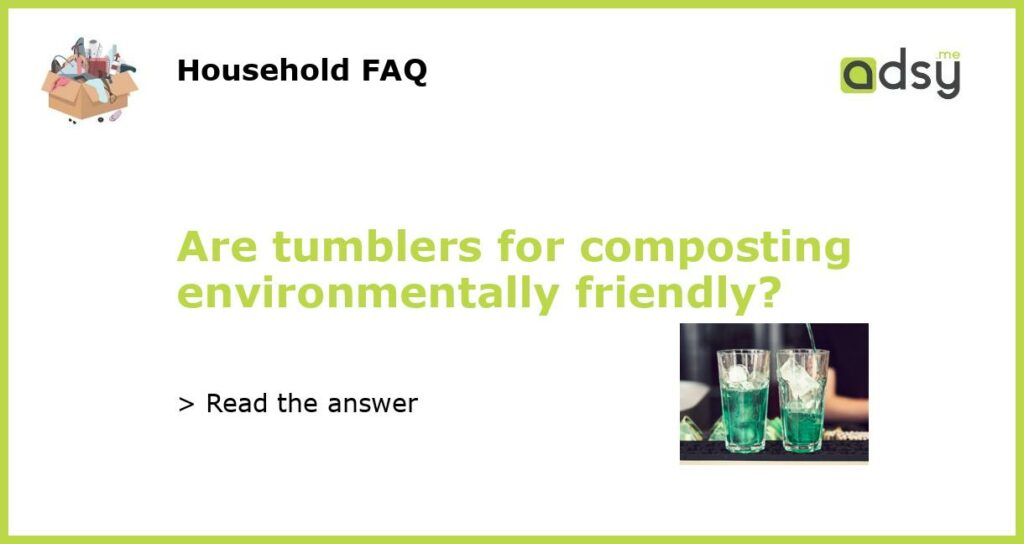Yes, tumblers for composting are environmentally friendly
Tumblers for composting have become increasingly popular in recent years as a more convenient and efficient way to compost kitchen scraps and yard waste. These composting systems are designed to accelerate the decomposition process and produce nutrient-rich compost that can be used to enhance soil quality and promote plant growth. Not only do tumblers offer several practical benefits for composters, but they also have a positive impact on the environment. Here are five reasons why tumblers for composting are considered environmentally friendly.
Reduces landfill waste
One of the primary environmental benefits of using a tumbler for composting is that it helps reduce the amount of waste sent to landfill sites. According to the United States Environmental Protection Agency (EPA), food scraps and yard waste make up about 30% of what we throw away. When these organic materials end up in landfills, they undergo anaerobic decomposition, which produces methane, a potent greenhouse gas. By composting these organic materials instead of throwing them in the trash, we can significantly reduce methane emissions and minimize the strain on already overwhelmed landfill sites.
Saves water and energy
Composting with a tumbler also contributes to water and energy conservation. Traditional composting methods require turning or aerating the pile manually, which can be time-consuming and physically demanding. In contrast, tumblers have a built-in system for aeration and mixing, which eliminates the need for manual labor. This not only saves time and effort but also reduces the amount of water and energy required to maintain the compost pile. By using a tumbler, composters can achieve faster decomposition with minimal water usage and energy consumption, making it a more sustainable option.
Promotes soil health
Composting with a tumbler produces high-quality compost that is rich in organic matter, nutrients, and beneficial microorganisms. When added to the soil, this compost improves its structure, enhances moisture retention, and promotes the growth of healthy plants. By using compost made in a tumbler, gardeners and farmers can reduce their reliance on synthetic fertilizers and pesticides, thereby minimizing their negative impact on the environment. Additionally, the increased organic matter in the soil helps sequester carbon and mitigates climate change by capturing and storing atmospheric carbon dioxide.
Reduces chemical fertilizer usage
Chemical fertilizers are commonly used in agriculture to replenish essential nutrients in the soil. However, excessive and improper use of these fertilizers can have negative consequences for the environment. Runoff from fields can contaminate water bodies, leading to algal blooms, water pollution, and harm to aquatic life. Tumblers for composting offer a sustainable alternative to chemical fertilizers by providing a natural and nutrient-rich source of plant food. Using compost from a tumbler as an organic fertilizer helps reduce dependence on synthetic chemical fertilizers, minimizing the associated environmental risks.
Encourages sustainable gardening practices
Using a tumbler for composting also encourages and promotes sustainable gardening practices. Composting allows gardeners to create a closed-loop system where organic waste is transformed into valuable resources. By diverting kitchen scraps and yard waste from landfills and turning them into compost, gardeners can minimize their ecological footprint and actively contribute to a healthy ecosystem. This promotes a holistic approach to gardening that focuses on reducing waste, conserving resources, and nurturing the natural balance of the environment.
In conclusion, tumblers for composting are not only practical and convenient but also environmentally friendly. They help reduce landfill waste, save water and energy, promote soil health, reduce chemical fertilizer usage, and encourage sustainable gardening practices. By composting with a tumbler, individuals can make a positive impact on the environment and actively contribute to a more sustainable future.






